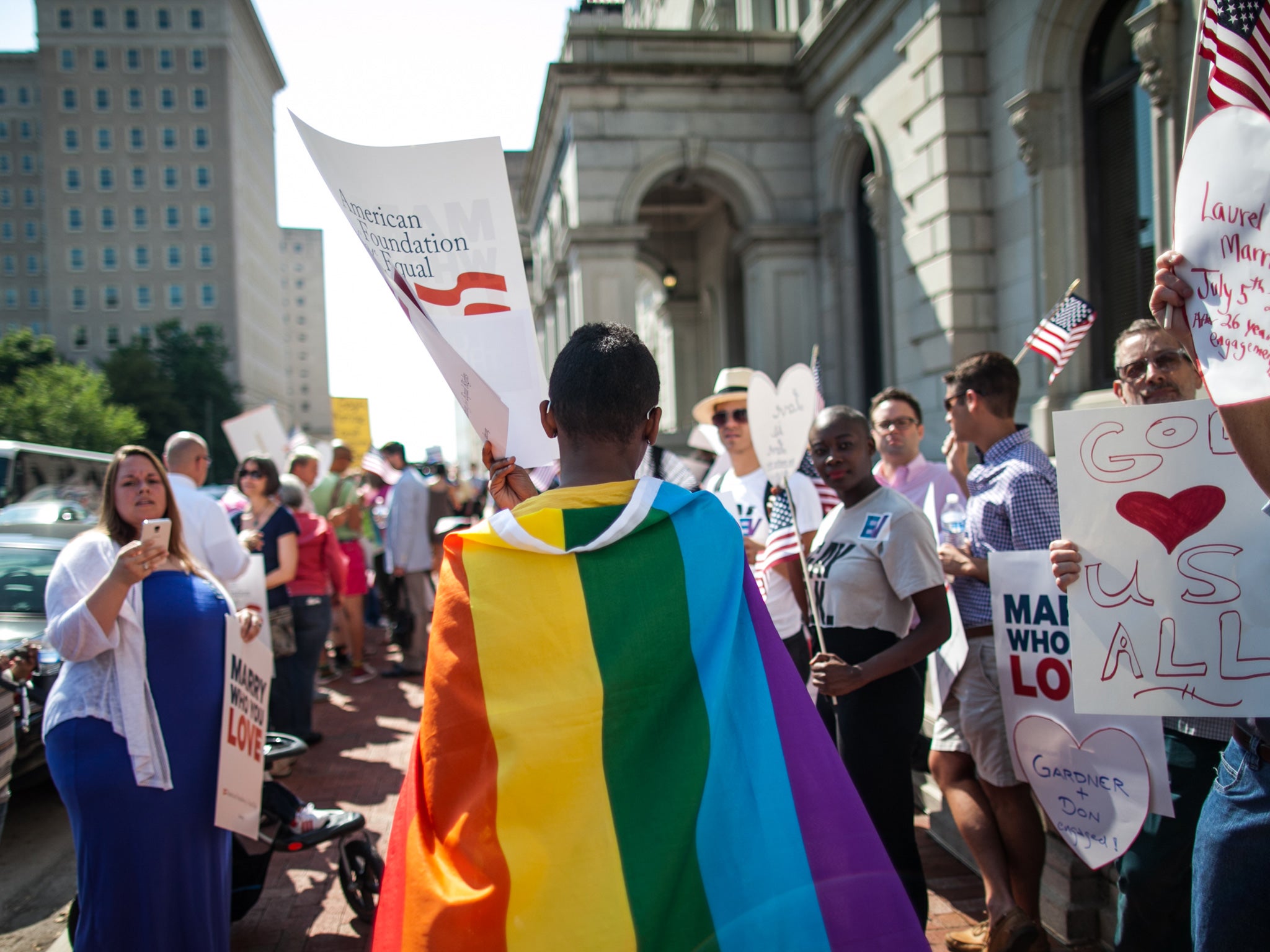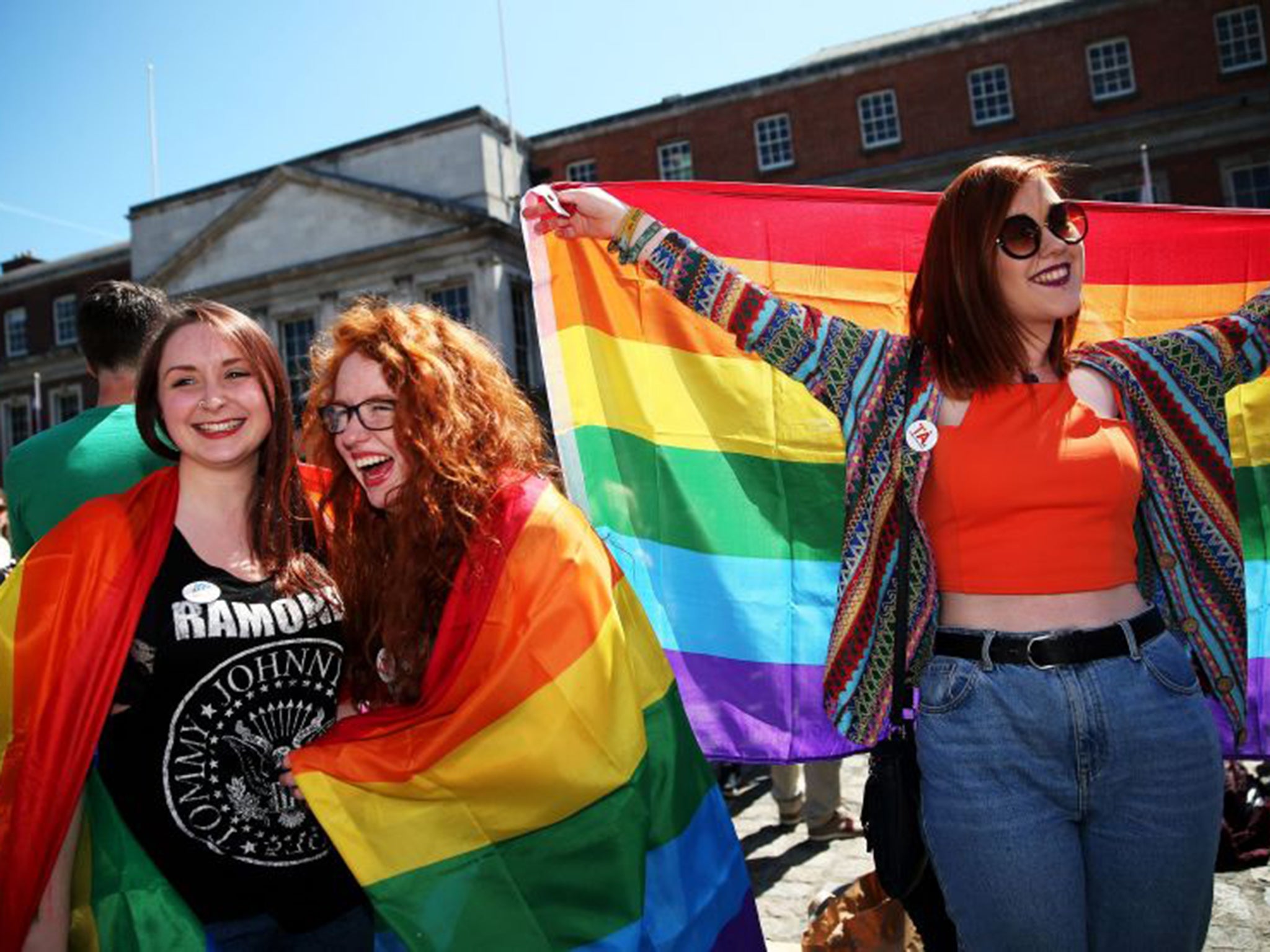Study claiming to show how easy it is to convince people to support gay marriage retracted by scientific journal
Serious doubts have emerged over the authenticity of the claims

Your support helps us to tell the story
From reproductive rights to climate change to Big Tech, The Independent is on the ground when the story is developing. Whether it's investigating the financials of Elon Musk's pro-Trump PAC or producing our latest documentary, 'The A Word', which shines a light on the American women fighting for reproductive rights, we know how important it is to parse out the facts from the messaging.
At such a critical moment in US history, we need reporters on the ground. Your donation allows us to keep sending journalists to speak to both sides of the story.
The Independent is trusted by Americans across the entire political spectrum. And unlike many other quality news outlets, we choose not to lock Americans out of our reporting and analysis with paywalls. We believe quality journalism should be available to everyone, paid for by those who can afford it.
Your support makes all the difference.A study purporting to show how easy it is to persuade conservative-minded people to support gay marriage has been retracted by a scientific journal after serious doubts have been raised over its authenticity.
The social scientist who was the lead author of the study published last December in the journal Science has also become embroiled in separate allegations that he manipulated scientific data in another study he carried out on the political attitudes of television viewers.
Michael LaCour, a 27-year-old postgraduate student at the University of California Los Angeles (UCLA), produced “eye popping” findings last year showing how easy it was to change peoples’ views on anything ranging from waste recycling to gay marriage – results with important ramifications for political canvassing.
However, the journal Science has now retracted the study it published last December by Mr LaCour and his co-author Professor Donald Green, an experienced political scientist at Columbia University in New York, who has since distanced himself completely from LaCour by pushing for the retraction to be published.
In a statement released by Science, three reasons were given for the retraction: the claims that participants in the survey were given cash incentives to participate were false, the authors’ statement on sponsorship of the study was false, and, most damningly, there were “statistical irregularities” in the findings that could not be resolved.
“LaCour has not produced the original survey data from which someone else could independently confirm the validity of the reported findings. Michael J. LaCour does not agree to this retraction,” said Marcia McNutt, the editor-in-chief of Science.
“No peer review process is perfect, and in fact it is very difficult for peer reviewers to detect artful fraud. Fortunately, science is a self-correcting process; researchers publish work in the scholarly literature so that it can be further scrutinized, replicated, confirmed, rebutted or corrected. This is the way science advances,” Dr McNutt added.

Gregory Martin, professor of political science at Emory University in Atlanta, Georgia, said that he had a similar experience with LaCour over a study published last year into the political attitudes of cable TV viewers. Professor Martin said that he was unable to replicate LaCour’s findings, suggesting that they were “very likely fabricated”.
Last December, Mr LaCour claimed that a single conversation between a member of the public and an openly-gay person who supports same-sex marriage can go a long way to changing attitudes and keeping them changed for many months after the initial conversation took place.
“You forget the message, but you remember the messenger,” Mr LaCour said in publicity material released at the time by UCLA, where he is a PhD candidate in political science investigating “hot button” issues such as abortion rights and illegal immigration.

His co-author Professor Green said that he did not participate directly in the surveys that LaCour was said to have undertaken, but helped him to write up the study after asking him to replicate them a second time to make sure they were valid.
“I thought they were so astonishing that the findings would only be credible if the study were replicated,” Professor Green told the investigative website Retraction Watch.
“Convinced that the results were robust, I helped Michael LaCour write up the findings, especially the parts that had to do with the statistical interpretation of the experimental design,” he said.
The study received widespread publicity. However, other researchers tried to replicate it but were unable to show any significant changes in attitude to gay marriage after people had been interviewed by an openly gay person.
“The study’s findings had huge implications for people who were trying to advance the cause of equality and have changed how advocates do their work. Every minute we knew the truth and did not disclose it really was a lie by omission to the advocates out there,” said Professor David Brockman of Stanford University, who was one of the researchers who first questioned LaCour’s findings.
Mr LaCour was not available at the time we went to press. However, a statement on his website said that he would supply a “definitive response” to the allegations by 29 May.
Join our commenting forum
Join thought-provoking conversations, follow other Independent readers and see their replies
Comments